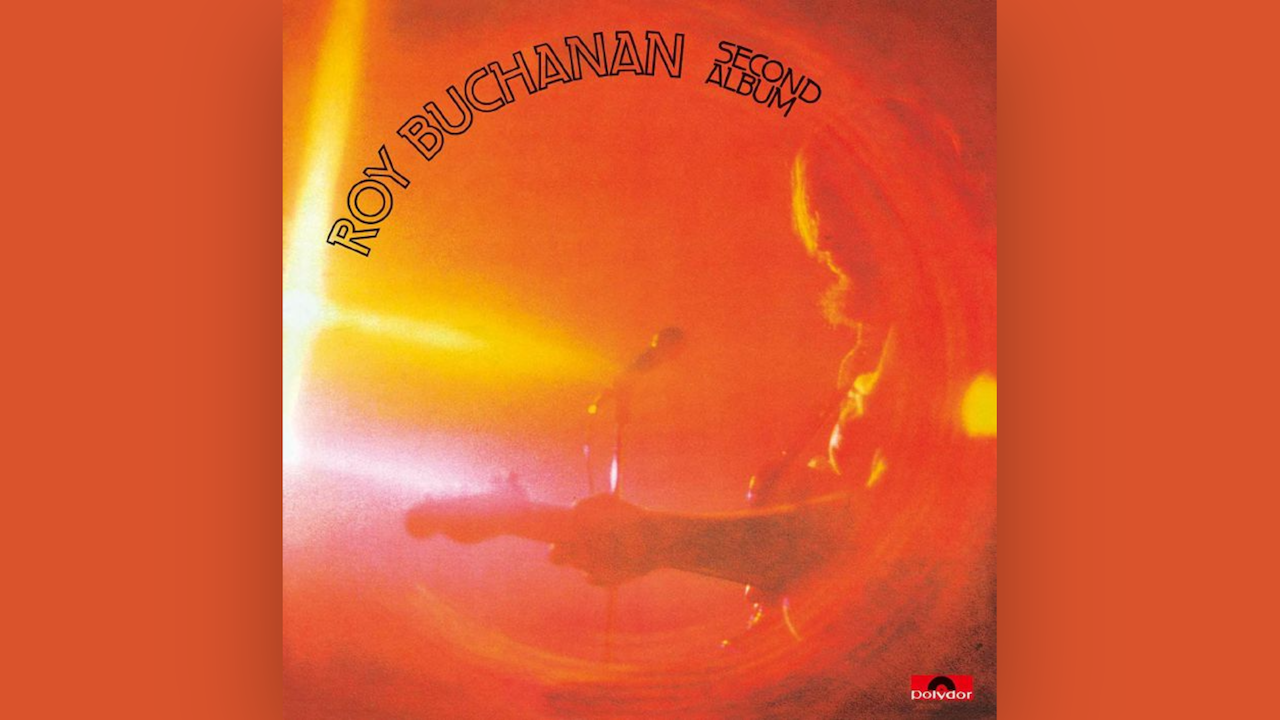Pushing Telecaster playing to innovative new heights, Roy Buchanan’s Second Album is a guitar masterclass as groundbreaking and timeless as its predecessor
With haunting songs about Jesus, solos that erupt like volcanoes plus his trademark chicken picking, shredding and right-hand pyrotechnics, here’s why you should take a deep dive into Roy Buchanan’s Second Album

One of my favorite moments as a Roy Buchanan fan was his late-night performance of Willie Nelson’s “Night Life.” Roy interpreted Buddy Emmons’ steel-guitar voicings, played unique jazz lines and commanded beautiful ii-V progressions. I listened like a voyeur with jaw agape, sensing Roy was playing entirely for himself.
I also recall seeing him during bleaker times, in his post-Polydor, pre– Alligator Records era, with an audience of about 20 people as he sang a blues using improvised lyrics: “I used to make $100,000 a year, and now I have to play a place like this…”
When I’m asked, “What are the best Roy Buchanan albums to get?” I always answer, “His first two.” That’s the Roy Buchanan I love. Although there are wonderful moments on all of Roy’s records, and I’m grateful to Alligator Records for rekindling his career, I’ve always loved his versatility and sound on his first two Polydor releases.
Released on the Polydor label in 1973, Second Album is a seamless sequel to Roy’s 1972 release, featuring largely the same lineup of Dick Heintze on piano and organ, Teddy Irwin on rhythm guitar, Chuck Tilley (who sings “Treat Her Right”) and drummer Ned Davis (who plays on “She Once Lived Here”). Newcomers include Jerry Mercer, who fills out the drum chair, and bassist Don Payne. The producer, once again, is Peter Kieve Siegel.
The record kicks off with “Filthy Teddy,” on which Roy’s right-hand pyrotechnics, pinch harmonics, volume swells and melodic approach are all solid. It’s followed by “After Hours,” on which he gives a nod to the swinging Jimmy Nolen, best known as James Brown’s guitarist.
Roy redefines the song and makes it his own with drastic dynamic shifts and toggle-switch variations as he jumps seamlessly from double-stops to steel-guitar sounds while wrenching from his Telecaster almost every sound it can make.
“Five String Blues” is a minor-key tune that earned its name after Roy broke a string recording it. His vocal-like guitar tone and volume swells, mixed with his singular shredding, make this track a keeper.
Roy sings “Whoa, Jesus, this is my final day,” as he closes side one with “Thank You Lord,” and his right hand has a pianistic way of sweep-picking the chords. Roy’s religious references captured my young imagination.
He was unlike any guitar hero I listened to, and his songs about prayer and Jesus were a far cry from Ritchie Blackmore throwing a steak in a restaurant.
Side two opens with “Treat Her Right,” on which Chuck Tilley vocalizes before Roy’s solo jumps out like a rocket ship breaking through the atmosphere.
On “I Won’t Tell You No Lies,” Roy throws in the kitchen sink, using octaves, double-stops, harmonic squeals and his trademark chicken picking. ”Tribute to Elmore James” is a personal favorite. I love how Roy plays the blues while retaining a melody, almost like a gospel singer.
His melodicism was unique and iconic, and unlike Clapton, Beck or even Hendrix, there was something deeply American in his playing. On the country-style closer, “She Once Lived Here,” Roy both defines and advances Telecaster stylings, showing his genius as a stylist and an original.
Second Album remains innovative 50 years after its release. Roy raised the Telecaster out of the guitar herd and showed us the sonic range it was capable of. If you’re a Tele player, or just a fan of great guitar music, it doesn’t get much better than this.
Roy Buchanan’s Second Album is available to buy and stream now
Get The Pick Newsletter
All the latest guitar news, interviews, lessons, reviews, deals and more, direct to your inbox!
Jim Campilongo has 14 critically acclaimed instrumental records available on vinyl, CD and digital download here.
“We’re Liverpool boys, and they say Liverpool is the capital of Ireland.” Paul McCartney explains how the Beatles introduced harmonized guitar leads to rock and roll with one remarkable song
"When they left town, I went to the airport and got to meet Ritchie, and he thanked me for covering for him." Christopher Cross recalls filling in for a sick Ritchie Blackmore on Deep Purple's first-ever show in the U.S.











